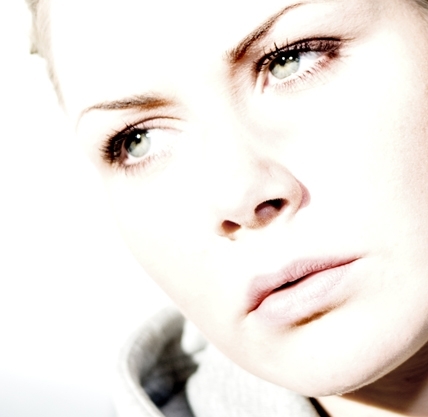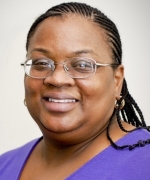
My daughter is 41-years old. She had a severe TBI when she was 17. She now has a 3-year-old son and is raising him as a single mother. How will her brain injury affect my grandson as he gets older and cannot understand why she acts like a 13-year old? Has any research been done on this?
This is a difficult question to answer without details of your daughter’s injury. I am not sure what you mean when you say she “acts like a 13-year old.” But here are some things to watch for:
- Is your daughter cognitively able to remember and organize their lives so that your grandson’s basic needs are met? If you are concerned about her ability to provide food, clothing, shelter, and safety on a consistent basis, somebody needs to step in.
- Is she able to consistently show her son love and affection, and to manage her emotions when he does things that frustrate her? Being able to experience unconditional love early in childhood has a significant effect on how confident a child will be as he gets older.
- Is she able to set limits and stick to them when she is challenged; can she see things from another’s point of view and put someone else’s needs before her own? These are the building blocks of being able to provide constructive discipline. An environment with inconsistent rules, or where a young child perceives he can manipulate his parent, can lead to either withdrawal or to anger and acting-out behavior.
The good news is that many of the skills required for parenting can be taught. Even with your daughter “acting like a 13-year old,” the fact is she is 41 — she is not in the midst of the hormonal upheaveal of a 13-year old, and she does have some life experience behind her. She might benefit from a parenting class or the support of either a developmental therapist or a support group of other parents with brain injuries (if available in your area).
It is also important that her son, as he gets older, be educated about the effects of his mother’s brain injury. And it's important to remember that, until he is older, he will not view her as acting like a 13-year old; to him she is just “mom.” Young children are very accepting of their parents and he likely does not view her as different. While there may be some specific deficits your daughter has that need to be compensated for, as long as she is providing a safe, loving environment, your grandson should be alright.
About the author: Celeste Campbell, PsyD
Dr. Celeste Campbell is a neuropsychologist in the Polytrauma Program at the Washington, DC Veterans Administration Medical Center. She has a long history of providing cognitive psychotherapy and developing residential behavioral management programs for children and adults.


Comments (12)
Please remember, we are not able to give medical or legal advice. If you have medical concerns, please consult your doctor. All posted comments are the views and opinions of the poster only.
Anonymous replied on Permalink
I had a TBI when I was 10 years old. I had my daughter at 21 and I am now 36. Raising a now 14 year old on my own has been very difficult. Even though my injury happened so long ago, the permanent lasting effects have significantly hurt my ability to be the best mom I had always dreamed of becoming. I do have to be on two different medications which has helped me so much with organization and memory and brain fog. As for quick thinking, empathy, and articulation, I still have lots of issues. My daughter is way smarter than I am, so her ability to turn stuff around real quick and catch me off guard tends to happen more often the older she gets. She doesn’t clearly understand my disability and the reasons why I am the way I am. My mom has been a godsend and moved to the state I live to help me. My mom tries to explain to my daughter why I do what I do but at the end of the day when my daughter wants to get her way, she will find a way to do just that. All I can do is continue to be the best version of myself. I know daily tasks are going to be 10 times harder for me than someone with a normal brain. I will not let what happened to me control my life, I just power thru. Being a parent has been the hardest for me, but as long as I am thinking about her needs before my own and loving unconditionally, things work out the way they need to. I hope others out there find the strength to keep going and not being afraid to ask for help. Family, friends, doctors are all there for you. Please seek out so you do not accidentally bring yourself and loved ones down. It’s not worth losing anyone when you can get yourself help.
Stins replied on Permalink
My husband is the son of a woman with a TBI. He suffers from anxiety, ptsd and at times depression because of being raised by his mom. I know his mother did her best with what she had to raise him but it still took a toll on him psychologically. As an adult he had to learn how to enforce boundaries and has had to learn social cues that his mom couldn’t teach him. Thankfully his parents were still married when he was raised so he had a dad to help out but he grew up in a household with constant fighting due to his mom and her TBI and refusal to take responsibility for anything, lack of social norms and her childlike behavior. She also was (unintentionally) emotionally abusive. Of course she has good qualities too. But seeing the toll that it took being raised by his mother has shown me that (all TBI’s are different of course) but A child doesn’t understand why his mother won’t listen to him or interrupts him or acts like a child at his parties when the other adults don’t or acuses him of wrongdoing when he has done nothing or displays paranoia or won’t admit her mistakes when she has really hurt his feelings. All he knows is that is his mom. So in the case of my husband, he grew up thinking that something was wrong with HIM because if his mom really loved him she wouldn’t act that way. I know his mom had every intention of being a “good mom” but the fact is that if you’re abusing your child emotionally every if you’re not aware of it you are still damaging that little person. You can have every good intention to give someone a million dollars but if you physically don’t have the money then you just can’t. She just mentally and physically did not have the ability to give a child a well balanced childhood where the child learns and feels love and respect. In my opinion that little person either needs someone without TBI to be there at every moment to explain his mothers actions and remind him that it isn’t personal or he just needs to live with someone else that can fill that emotional need.
Macayla Vultaggio replied on Permalink
I am 24 yrs old with 5 yr old closed moderate-severe head injury I received at the age of 17. I am the mother of 2 boys ages 4 and 2. Over the yrs I have had a few people accuse me of behaving as an adolescent, by my own mother as well as others. First thing you need to do is change those thoughts about her behaving like she is "13" and starting thinking your daughter is a mom with a brain injury. It's not an exuse, those are the facts and not what you precive. Projecting that someone might be acting childish is one thing, it can give us insight. But when making the claim with specific age rolls a person with a brain injury is going to take it very personally. They dont and we don't want to behave poorly. Consider asking how she is feeling and how you can help make things less stressful. Don't just take the kids! We want our babies. It is almost more taxing to take care of our children, where it is hard to play later. Maybe she needs a day a week or maybe every two weeks someone comes and does a general clean of her house or does take your grandson out. It's frustrating as a daughter with a brain injury to read this, but Im glad to share the insight. If you keep treating her like an adolescent, odds are she is going to give it back to you that way. She is an adult making her own desicions regardless her limitations. Being baraided by the idea that we arnt grown enough emotionally to have kids, manifests it's way into life, and makes things much scarier then they actually are. Remember she is her own person, a grown woman, trying to have a full life, With what ever she feels she has left. Let her be a mom and make things easier for her to be with her child, that's still hard work, but it's what mom's and babies want most and need most. As a last note stop giving her uninvited concerned or advice. It's your job as a grandma to remind her we don't have a manual, we make mistakes, and just be ready to listen first when she does have things to say or ask you. Best wishes. Make sure you apologize for any miscimmunications. Or if you were wrong, or said something that wasn't nice. What are you doing that you could do better? or stop doing if it's no longer benefiting yours and hers relationship.
Rosey replied on Permalink
Hope you do well Macayla
It's good you understand
I'm 40 with ABI and I'm childlike in alot of ways
My biological mother abused me lots
Yet people viewed her as been perfect
I think been child like is okay
Nancy replied on Permalink
My daughter suffered a TBI at age of 5 she is now 26 she is not responsible with money. She gets a settlement every four years from car accident she went through 42000 in two months i need to find a way to get a hold of her finances for her future
Macayla replied on Permalink
Leave her money alone
Anonymous replied on Permalink
My son was 15 at the time of his accident even after 5 years still stuck as a teenager going through the terrible 2's.
Anonymous replied on Permalink
My son (29) was a passenger in a car accident and suffered trauma to the brain. A few years on he does not realise that he is so very different. I know I am his mother. I am patient and understanding but should I try to help him to see the difference or should I just carry on being patient and encourage the delusion that all is well? what would help him most?
Anonymous replied on Permalink
Anonymous replied on Permalink
Anonymous replied on Permalink
Anonymous replied on Permalink